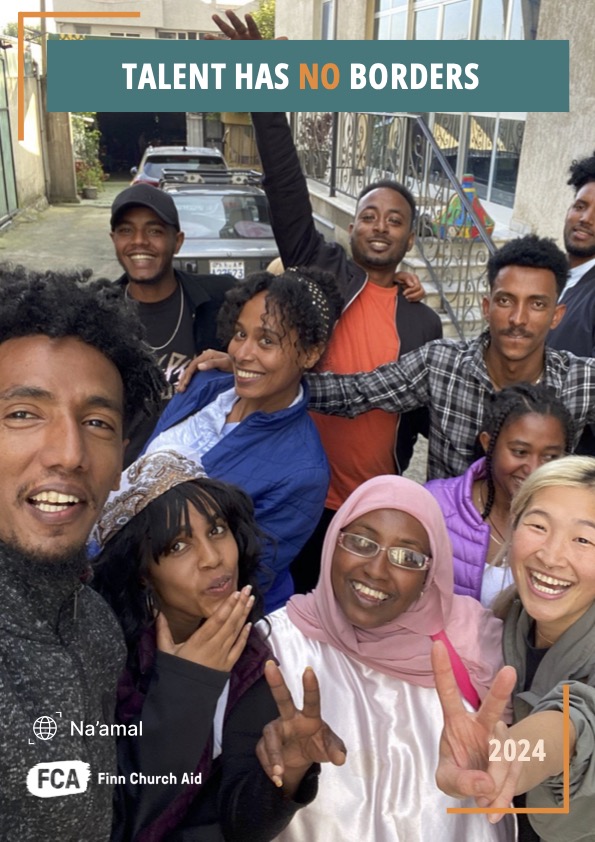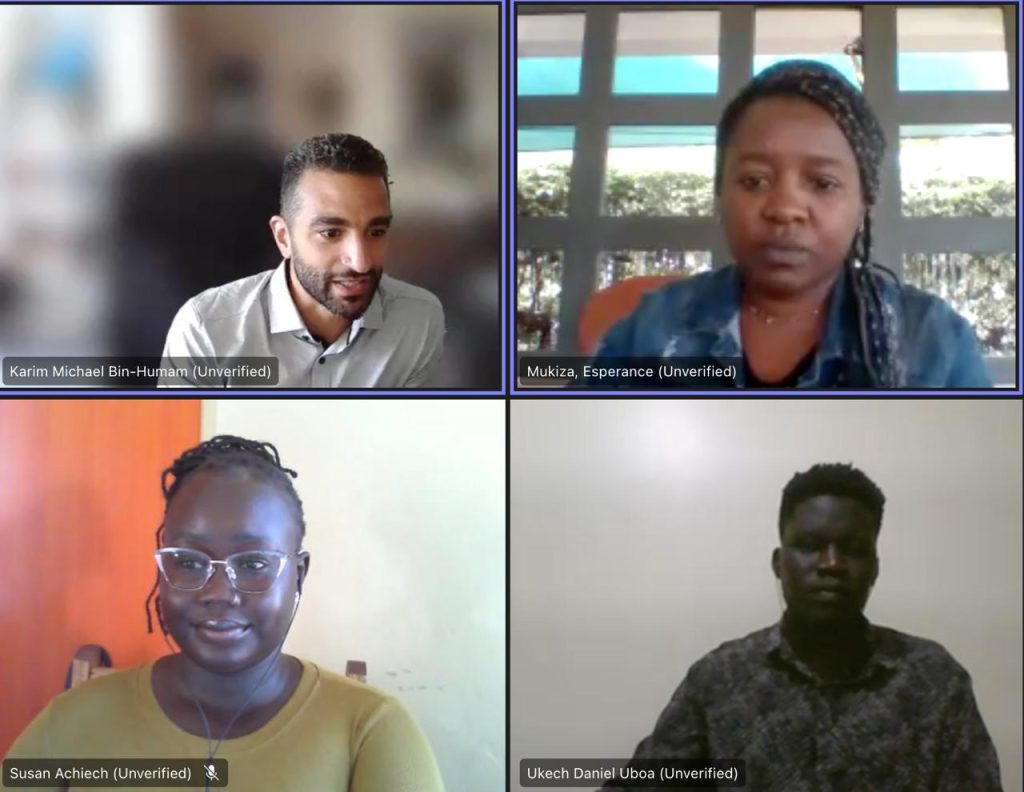‘Talent Has No Borders’: Na’amal and FCA launch report on connecting refugees to digital livelihoods

Finn Church Aid (FCA) and social enterprise, Na’amal, launched a pioneering joint report titled ‘Talent has No Borders: Creating Connections For Refugees and other Displaced People to Decent Digital Livelihoods’.
THE STUDY, co-authored by Lorraine Charles, Executive Director at Na’amal, Dr. Shuting Xia, Julieta Guzmán, and Sonia Catinean, delves into the current landscape of digital livelihoods for refugees and displaced individuals. It explores the challenges they face and identifies key strategies and initiatives to facilitate their access to digital work opportunities, with the ultimate goal of empowering refugees and promoting their economic integration.
The study revealed that while a diverse array of stakeholders are actively contributing to a thriving ecosystem to engage refugees in digital employment, significant challenges persist. These include inconsistent job opportunities, infrastructure and connectivity issues, and regulatory uncertainties surrounding refugees’ legal right to work remotely. The report underscores the importance of collaboration among programmes and organisations to maximize impact and develop comprehensive employment approaches tailored to the unique needs of refugee digital workers.
Employing a robust scoping approach, the study includes key informant interviews with various stakeholders, including organizations providing support, companies employing refugees remotely, and refugee workers themselves. These interviews offered valuable insights from firsthand experiences, enabling a deeper understanding of the subject matter.
The report underscores the active roles played by various stakeholders in advancing digital livelihoods for displaced individuals, including international organizations, national entities, social enterprises, NGOs, and the private sector. Within the expansive digital livelihood landscape, these stakeholders assume diverse roles, collaborating and relying on each other to cultivate a flourishing digital employment ecosystem. Despite challenges such as inadequate infrastructure, internet connectivity, digital skills gaps, and limited access to work opportunities, stakeholders have launched initiatives to bolster refugee support.

Report launch webinar saw refugees tell their stories of digital work
An online webinar saw refugee and digital experts come together to discuss the report, lessons learned and the way forward. Sonia Catinean, Programme Manager at Na’amal shed light on the obstacles refugees encounter when seeking digital employment, such as the need for proper infrastructure, including stable internet connection and personal laptops. Catinean also stressed the importance of valid documentation for refugees to receive payments and emphasized the crucial role of soft skills training in preparing them for remote work.
A highlight of the webinar was the panel discussion moderated by Karim Bin-Humam, Digital Livelihoods Consultant at UNHCR Innovation, where refugees shared their experiences accessing digital livelihoods. The panelists included three talented individuals who have participated in Na’amal’s digital skilling programs: Susan Achiech, a software developer; Ukech Daniel Uboa, who has earned income through the microwork platform Appen; and Esperance Mukiza, a healthcare professional seeking to enter digital employment.
Abdi Hamisi Ambari, Tech and Comms Lead at Na’amal, introduced the newly formed Na’amal Agency. This innovative initiative aims to effectively bridge the gap between displaced talent and remote work opportunities while providing support to further develop their technical and professional skills.
Watch the ‘Talent has No Borders’ webinar that launched the report on 17 April 2024
Digital livelihoods can empower refugees
Organisations like Na’amal and FCA, which invest in digital livelihoods are advocating daily for government cooperation. They engage with stakeholders across sectors to devise solutions. Initiatives such as portable internet connectivity devices, upskilling programs, and mentorship opportunities address specific needs.
Career development support, apprenticeships, and entrepreneurship training also empower refugees to access digital work opportunities. And e-commerce platforms significantly promote e-business entrepreneurship among displaced populations by providing invaluable resources, training, and access to pertinent materials.
“Digital livelihoods offer a powerful way to economically empower refugees, but significant barriers remain,” said Lorraine Charles, Executive Director of Na’amal. “This report provides an in-depth look at the current landscape and identifies key practices to help more refugees build decent careers in the digital economy. We hope the insights spur action among humanitarian organizations, NGOs, social enterprises and the private sector to expand digital livelihood opportunities for refugees everywhere.”
As global displacement hits record levels – digital livelihoods can help
Digital livelihoods offer a promising solution to the economic hardships faced by refugees but entail addressing various challenges. Inconsistent availability of digital employment opportunities often disappoints refugees seeking online work. Infrastructure, connectivity, and access to devices are critical prerequisites requiring attention. Regulatory uncertainties and fragmented upskilling programs further complicate matters. Addressing these challenges is crucial to ensuring that digital livelihoods empower refugees sustainably.
As the global displacement crisis reaches unprecedented levels, the potential of digital livelihoods in empowering refugees and promoting their economic integration is clearer than ever. The ‘Talent has No Borders’ report provides crucial recommendations for stakeholders to strengthen collaboration, develop refugee-tailored support programs, and engage employers to create more opportunities. By fostering cooperation, providing comprehensive support, and engaging with key stakeholders, FCA and Na’amal are committed to working towards a more inclusive digital economy that empowers displaced people to find decent work and shape brighter futures.
The full report can be accessed here.
To learn more, visit FCA’s topic page on technical and vocational education and training (TVET) and Na’amal’s website.